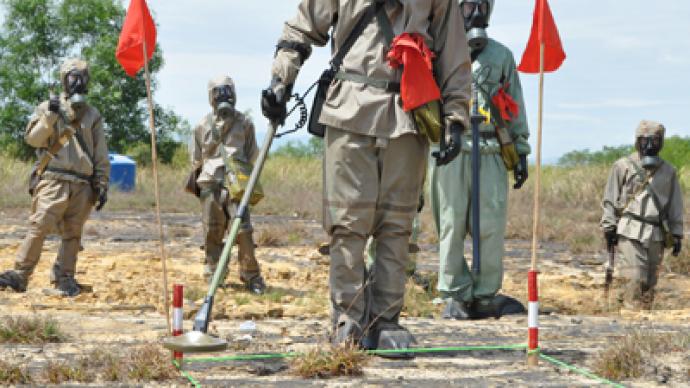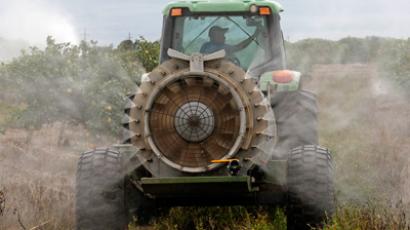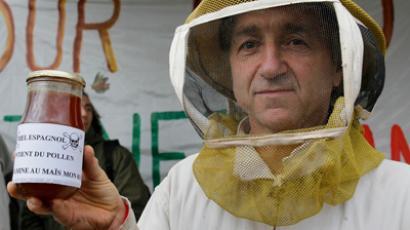Too little too late? US to clean up Agent Orange in Vietnam

The Vietnam War ended over 35 years ago, but not before some 1 million people died. And the toxic chemical Agent Orange, used by US forces to burn away parts of the jungle, still lingers in the area, poisoning the environment and human bodies.
Only now, 51 years after the first spraying, is Washington acknowledging the devastation it caused with Agent Orange to Vietnam’s ecosystem and the health of the Vietnamese.On Thursday, the two countries are launching the first ever joint decontamination program on part of Danang International Airport, located in one of the country’s most popular tourist destinations. The deadly defoliant was stored at Danang airbase and sprayed from US military planes to strip trees of their foliage and expose communist troops along the border with Laos.US troops sprayed up to 53 million liters of Agent Orange during 10 years of the Vietnam War, according to Reuters.To this day, vast amounts of the toxic chemical remain in soil and water sources. They can enter the food chain through animal fat, leaving many people to deal with its harmful after-effects. It has been blamed for countless deaths and deformities in newborn babies, having affected both the Vietnamese – not discriminating between combatants and civilians – and US veterans.The American government is now allocating US$41 million to the clean-up project, which is aimed at reducing the contamination levels in 73,000 cubic meters of soil by late 2016, according to Vietnam’s ruling Communist Party.However, the question of health compensation is still one of the major post-war issues between Washington and Hanoi.For many years after the war the United States did not want to recognize that Agent Orange was even a problem for its own veterans, says Jeanne Mirer, president of the International Association of Democratic Lawyers.“Until 1994, when normalization happened, they reneged on any obligation that they had agreed to remediate or help rebuild Vietnam. It’s been a historic denial process that the United States has had, saying that they don’t believe there’s anything wrong, that they did anything wrong or that there’s been any problem,” she told RT.So what triggered that change in Washington’s attitude?Columnist and political cartoonist Ted Rall says it is profit, not ethics.“US trade relations with Vietnam are becoming increasingly important, especially as China reaches out into Vietnam. So the State Department obviously views this as an opportunity to improve the relations with Vietnam and therefore open up more opportunities for American business,” he told RT. “This is over half a century later – a lot of the people who were affected would have died of old age anyway by now… We should have taken care of this in 1975.”Rall’s stance is echoed by Vietnam War veteran and organizer of the ANSWER Coalition, Bill Hackwell, who believes that Washington's motives are not purely humanitarian.“You have to question the timing of that, and it cannot only be viewed as a concern to try to pull Vietnam closer to them – because of the growing influence that China has as an emerging superpower around the world,” he said.














